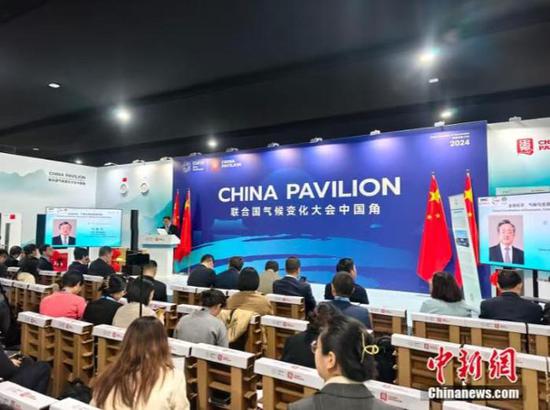Insights | Delivering on past promises matters more than making new ones: British scholar on tackling climate change
By Wu Xinru
(ECNS) -- "The Conference of the Parties (COP) to the UN Framework Convention on Climate Change (UNFCCC) has been a good process in helping the world resolve to do better collaboratively. I think that now the role of COP is to better monitor performance against promises," said Timothy C. Green, academician of the Royal Academy of Engineering, IEEE Fellow, and professor at Imperial College London in an exclusive interview with China News Network, during which he shared opinions on the results of the recent COP29 and UK-China cooperation on tackling climate change.
The 29th session of the Conference of the Parties to the United Nations Framework Convention on Climate Change (COP29) drew a conclusion in Baku, Azerbaijan on Sunday, local time after more than 30 hours of extension.
After two weeks of negotiation, COP29 concluded with the Baku Climate Unity Pact, including decisions on the New Collective Quantified Goal (NCQG) for climate financing and issues relating to the global carbon market mechanism under Article 6 of the Paris Agreement.
COP has effectively facilitated global collaboration towards improved collective action on climate change, noted Green. He recalled that COP26 determined contributions and praised it as a "huge step forward" as every country setting out what it is going to do to solve the global problem.
So, as he sees it, each following COP has to hold countries to account in order that they make good on their promises and their nationally determined contributions.
A side event themed "Energy Saving and Carbon Reduction: China's Actions" was held at the China Pavilion during COP29 on Nov. 15, introducing China's green and low-carbon development initiatives and achievements.
As an academician at the Royal Academy of Engineering, Green has participated in several collaborations between UK universities and Chinese universities, including several leading ones.
He told China News Network that both sides have learned a lot from each other and there has been genuinely cooperative research. He said he felt "very lucky" to engage in these programs.
"I've been lucky to work in several collaborations and learn from China about how you take technologies out of university laboratories, scale them up in industry, and deploy them rapidly," Green added.
He also pointed out that there are some superb universities in China that have very strong mathematical skills. In the UK, they have a real drive to solve problems using analytical methods. And the two countries have come together well in this regard.
Similarly, the UK's experience can also provide a reference for other countries. It has been leading the world in the development of renewable energy and is currently gradually removing coal from the power system, taking a big step towards reducing carbon emissions.
He holds that different countries have different national conditions plus different types and quantities of natural resources and renewable energy. They need to learn from each other and exchange energy-saving and emission-reduction technologies. Taking the national power grid as an example, China is vigorously developing technologies for ultra-high voltage direct current power transmission.
If the UK plans to speed up power grid construction in the future, it needs to learn from China how to integrate the technologies into its grid, Green suggested.

